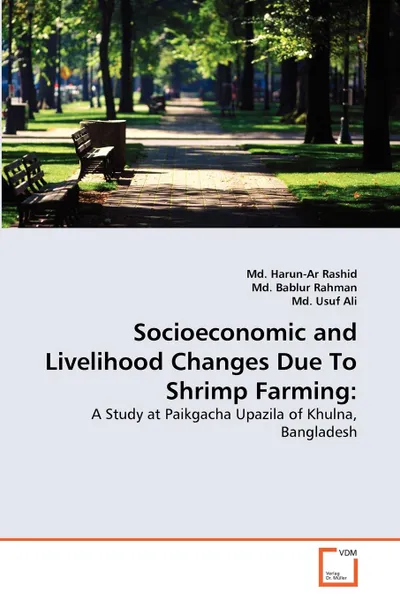Socioeconomic and Livelihood Changes Due To Shrimp Farming 12+
60 страниц
Категория: Научная литература
ISBN: 9783639302585
Язык: Английский
📒 The study was conducted in Paikgacha Upazilla of Khulna district, Bangladesh with a view to identify the socio-economic and livelihood changes due to shrimp farming. Data was collected from the 95 respondents by the researchers themselves through personal interview using and interview schedule during November 20, 2008. A remarkable change was observed incase of socio-economic parameters. The percentages of marginal small farmers decreased while the percentage of medium and large farm holders increased. The average income of the respondents become higher (Tk. 457.95 thousand) after inception of shrimp farming then that of before shrimp farming (Tk. 80.91 thousand). The standards of living increased after inception of shrimp farming but drop out from education increased. Leading out of land increased but land under own cultivation decrease due to shrimp farming. The alternative livelihood options based on respondents' choice are poultry farming cattle and goat rearing agriculture day labour handicrafts and so on.
Мнения
